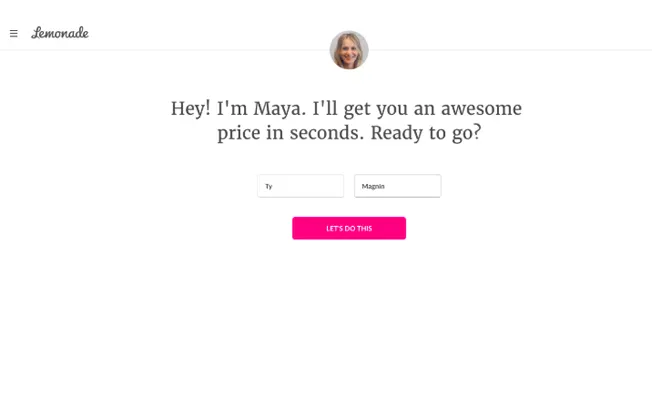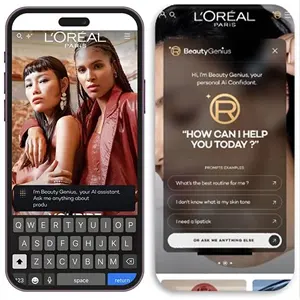7 Ways AI is Transforming Marketing Automation
The evolution of marketing automation has been significantly enhanced by artificial intelligence (AI), moving from simple rule-based systems to advanced, adaptive tools.
A Statista survey reveals that 90% of marketing professionals use AI to automate customer interactions, and 88% say AI has enabled them to personalize the customer journey across multiple channels.
As AI continues to advance, marketers will have even more opportunities to leverage automation for crafting personalized, efficient, and scalable campaigns that drive conversions.
In this blog, we explore 7 key ways AI-powered marketing automation can optimize your marketing strategies.
1. Predictive Analytics & Customer Segmentation
Brand example - Natural Cycles

Natural Cycles is a birth control app that uses an algorithm to track a woman’s fertility status based on her body temperature.
To enhance targeting and deliver more personalized messages to users, the company leveraged the AI-powered marketing automation platform, Optimove, to analyze user data and behavior patterns.
By segmenting users based on real-time activity, the app was able to tailor messages for different customer groups. This approach allowed them to schedule more campaigns in less time and with fewer resources.
2. Hyper-Personalized Content & Recommendations
ChatGPT has revolutionized the marketing landscape, especially for those creating content or companies looking to produce content at scale.
A variety of other tools, such as Claude, Perplexity, Google NotebookLM, and Midjourney, have also emerged, all capable of generating content from clear prompts.
Recent advancements in text, image, and video generation are enabling marketers to create more targeted ads, product descriptions, and email campaigns. AI-powered platforms like Adobe Creative Cloud Express and Canva allow marketers to generate graphics directly from text prompts.
Some marketers are even taking things a step further by creating content that adapts in real-time, responding to context and audience sentiment for ultra-personalized experiences.
Brand example – Spotify
Spotify uses AI algorithms to create personalized playlists and artist recommendations based on a user’s listening habits.
This allows the audio streaming service to deliver more of the music users enjoy, along with tailored suggestions that match their tastes.
Additionally, Spotify offers an AI-powered DJ feature for premium subscribers and is testing an AI voice translation tool for podcasts.
3. Chatbots & Conversational AI
Brand example – Lemonade Insurance

Digital insurance company Lemonade created a chatbot named Maya to assist users through the insurance-buying process.
Maya can gather information, provide quotes, and process payments, ensuring that customers receive insurance in under 90 seconds and payments within three minutes.
In addition to answering difficult questions, Maya also helps the company make adjustments to existing policies. As a machine learning system, it grows smarter with each customer interaction, continually improving its service.
Lemonade reports that Maya now handles a quarter of their inquiries and has sold 1.2 million insurance policies in just three years since its launch.
4. Improved Campaign Optimization & Performance Measurement
Optimizing a campaign and tracking its performance is essential for marketers, but it can be a time-consuming task. AI-powered tools make this process easier by not only tracking key performance indicators (KPIs) but also providing real-time feedback and actionable insights.
With this level of analysis, marketers can fine-tune campaigns to identify the top-performing channels (e.g., email) and gain insights into trends or obstacles, helping them maximize campaign effectiveness.
Additionally, AI tools like Google Analytics 360 and Zoho Analytics can automatically adjust campaigns based on KPIs such as engagement, click-through rates, and conversions.
Brand example – The North Face
Outdoor brand North Face aimed to better understand consumer preferences in each market to optimize the customer experience. The company achieved this by continuously monitoring how consumers searched for products on its website.
By using Google Tag Manager 360 alongside Analytics 360, North Face discovered that customers were searching for a new term—“midi parka.” Capitalizing on this insight, the brand renamed one of its products, resulting in a threefold increase in conversions and revenue.
5. Lead Scoring & Enhanced Sales Automation
According to Salesforce’s State of Sales report, 98% of sales teams believe automated lead scoring enhances lead prioritization.
AI lead scoring leverages algorithms to track and evaluate user or client interactions. This data is then used by the AI model to predict which leads are most likely to generate profitable sales or clients, improving the handoff to sales teams.
Sales teams can also automate lead nurturing by setting up AI-triggered campaigns that adjust based on a lead’s actions, making them more personalized and increasing the likelihood of engagement.
Additionally, AI can provide deeper insights into customer or client behavior and automate customer-facing tasks, such as sending emails or generating sales and customer reports.
Brand example – U.S Bank
U.S. Bank aimed to leverage predictive lead scoring to help its sales team focus on the most promising leads and opportunities.
To achieve this, they used Salesforce’s Einstein, an integrated suite of AI and machine learning technologies.
By utilizing Einstein’s predictive lead scoring, U.S. Bank experienced a 25% increase in closed deals, a 260% rise in lead conversion rates, and a 300% boost in marketing-qualified leads.
6. Visual Recognition for Social and Ecommerce
AI can now analyze images to identify brand-relevant content, user-generated content, or product matches.
This has led to a growing demand for visual search engines, particularly in the retail and e-commerce sectors. As a result, the global AI-powered e-commerce market is expected to reach $16.8 billion by 2030.
For instance, image classification is gaining popularity in mobile and social commerce, as consumers increasingly use their phones to search for products or services. Additionally, facial recognition technology could be used to detect emotions, further enhancing sentiment analysis.
Automated image recognition enables marketers to assess the quality and relevance of their visual content. It can also optimize images by generating tags or keywords, improving SEO and accessibility.
Brand example – L’Oreal

L’Oreal has created Beauty Genius, a generative AI-powered personal beauty assistant designed to offer personalized diagnostics, beauty routine recommendations, and interactive Q&A sessions.
The tool leverages advanced technologies such as augmented reality, computer vision, and generative AI to deliver an immersive and secure experience. Its goal is to provide customers with an experience that feels like a natural conversation with a beauty expert.
Customers can also enjoy a virtual try-on feature, which uses augmented reality to experiment with new looks in real-time, with suggestions curated by makeup artists.
7. Ethical Considerations and Transparency
When incorporating AI into your marketing activities, you’re granting the technology access to a vast amount of customer and company data. This brings the responsibility of ensuring that data is protected.
To address AI-related ethical concerns, businesses must be transparent and accountable in their use of AI in automation processes. It’s important to inform consumers that your company utilizes AI, explain its purpose, and provide them with the option to opt-out or give consent. This way, customers have the information they need to make informed decisions.
Brand example – O2
To raise awareness of its scam protection technology and enhance customer-centricity, U.K. mobile network O2 launched the AI Grandma campaign.
The campaign introduced Daisy, an AI-powered “Granny,” who answers calls from fraudsters in real-time. Daisy’s role is to keep scammers on the phone for as long as possible, preventing them from reaching O2 customers.
Use AI to supercharge your marketing activities
AI is more than just ChatGPT for today’s marketers. Our new Advanced AI for Digital Marketing course is designed to help you master practical AI skills that will enable you to create and execute a comprehensive, AI-powered digital strategy, maximizing ROI while saving time and effort. Enroll today to begin your journey.
